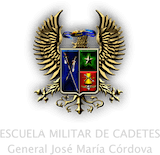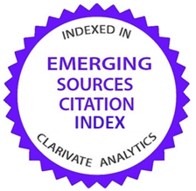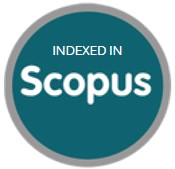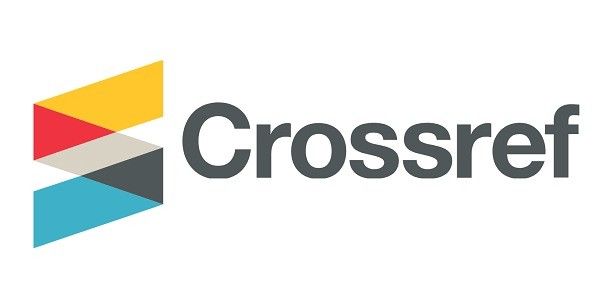Ética médica para la profesión militar
DOI:
https://doi.org/10.21830/19006586.814Palabras clave:
COVID-19, doble lealtad, ética médica, militares, principios de la bioética, profesionales de la saludResumen
Este documento resume la ética médica en la profesión militar para sensibilizar a los dirigentes militares sobre la ética médica militar (EMM) y las cuestiones éticas que pueden afectar a sus servicios y personal médico. Primero, resume los conceptos básicos, incluyendo los cuatro principios de la ética médica (autonomía, beneficencia, no maleficencia y justicia), los dos marcos jurídicos para el uso de la fuerza militar en la guerra, jus ad bellum y jus in bello, y el concepto de doble obligación. Seguido, examina las cuestiones relativas a la EMM durante el conflicto, en la asistencia sanitaria de guarnición y durante la epidemia de COVID-19. Concluye argumentando que la EMM es un dominio importante de la ética militar que debería enseñarse a los líderes militares para complementar la educación detallada de los profesionales médicos militares de EMM.
Descargas
Referencias bibliográficas
Ataç, A., Guven, T., Uçar, M., & Kir, T. (2005). A Study of the Opinions and Behaviors of Physicians with Regard to Informed Consent and Refusing Treatment. Military Medicine, 170(7), 566-571. https://doi.org/10.7205/milmed.170.7.566
Beauchamp, T. L. (2013). Principles of biomedical ethics (7th ed.). New York, New York: Oxford University Press.
Behm, A. (2020). War Crimes: Where does ultimate responsibility lie? Retrieved from https://australiainstitute.org.au/post/war-crimes-where-does-ultimate-responsibility-lie-only-a-royal-commission-will-determine-the-answer/
Bennett, R. A. (2016). Ethics surrounding the medical evacuation of catastrophically injured individuals from an operational theatre of war. Journal of the Royal Army Medical Corps, 162(5), 321-323. https://doi.org/10.1136/jramc-2015-000574
Bricknell, M., Homan, Z., Gheorghe, A., Gad, M., Kazibwe, J., & Quirk, E. (2020). An Analysis of the National Responses to the COVID-19 Pandemic Through the Lens of Medical Military Support Requiremebts. Norfolk, Virginia: NATO Allied Command Transformation Retrieved from https://www.openpublications.org/single-post/an-analysis-of-the-national-responses-to-the-covid-19-pandemic-through-the-lens-of-medical-military
Bricknell, M. C., & dos Santos, N. (2011). Executing Military Medical Operations. Journal of the Royal Army Medical Corps, 157(Suppl. 4), S457-S459. https://doi.org/10.1136/jramc-157-4s-10
Coleman, N. (2020). The Impact of the Duty to Obey Orders in Relation to Medical Care in the Military. In Ethics of Medical Innovation, Experimentation, and Enhancement in Military and Humanitarian Contexts, 37-52. Springer.
Cook, M. L., & Syse, H. (2010). What Should We Mean by ‘Military Ethics’? Journal of Military Ethics, 9(2), 119-122. https://doi.org/10.1080/15027570.2010.491320
Coupland, R. B., Alex. (2020). Health Care in Danger: The responsibilities of health-care personnel working in armed conflicts and other emergencies. https://www.icrc.org/en/publication/4104-health-care-danger-responsibilities-health-care-personnel-working-armed-conflicts
Dunham, A. M., Rieder, T. N., & Humbyrd, C. J. (2020). A Bioethical Perspective for Navigating Moral Dilemmas Amidst the COVID-19 Pandemic. The Journal of the American Academy of Orthopaedic Surgeons, 28(11), 471-476. https://doi.org/10.5435/JAAOS-D-20-00371
Dutton, L. K., Rhee, P. C., Shin, A. Y., Ehrlichman, R. J., & Shemin, R. J. (2021). Combating an invisible enemy: the American military response to global pandemics. Military Medical Research, 8(1), 8. https://doi.org/10.1186/s40779-021-00299-3
Eagan, P., & Eagan, S. M. (2020). From the Lab Bench to the Battlefield: Novel Vaccine Technologies and Informed Consent in Ethics of Medical Innovation, Experimentation, and Enhancement in Military and Humanitarian Contexts, 69-85. Springer.
Eisenstein, N., & Draper, H. (2020). Medical Prophylaxis in the Military: A Case for Limited Compulsion in Ethics of Medical Innovation, Experimentation, and Enhancement in Military and Humanitarian Contexts, 53-67: Springer.
Ferguson, A. H. (2013). Medical Confidentiality in the Military in Military Medical Ethics for the 21st Century, 209-224: Routledge
Gibson, T., & Coker, W. J. (2002). Medical Confidentiality: The Right of a Commanding Officer to Know. Journal of the Royal Army Medical Corps, 148(2), 130-136. https://doi.org/10.1136/jramc-148-02-05
Goniewicz, M., & Goniewicz, K. (2013). Protection of medical personnel in armed conflicts-case study: Afghanistan. European journal of trauma and emergency surgery: official publication of the European Trauma Society, 39(2), 107-112. https://doi.org/10.1007/s00068-013-0251-0
Gross, M. L. (2019). Military medical research in Britain and the USA: the challenge of informed consent. Journal of the Royal Army Medical Corps, 165(4), 298-302. https://doi.org/10.1136/jramc-2018-001023
Harroff-Tavel, M. (1989). Neutrality and Impartiality—The importance of these principles for the International Red Cross and Red Crescent Movement and the difficulties involved in applying them. International Review of the Red Cross (1961-1997), 29(273), 536-552. https://doi.org/10.1017/S0020860400074878
Henckaerts, J.-M. (2012). Bringing the Commentaries on the Geneva Conventions and their Additional Protocols into the twenty-first century. Int'l Rev. Red Cross, 94, 1551. https://international-review.icrc.org/sites/default/files/irrc-888-henckaerts.pdf
Hooper, C. R., Ryan, J., Pelham, E., & Mannion, S. (2015). Military medical ethics: a call to regulatory and educational arms. Medicine, Conflict and Survival, 31(1), 13-20. https://doi.org/10.1080/13623699.2015.1013391
ICRC. (2020). Protecting healthcare: Guidance for the Armed Forces. Geneva: ICRC.
https://www.icrc.org/en/publication/4504-protecting-healthcare-guidance-armed-forces
ICRC, W., ICMM, IFMSA, FIP, WCPT. (2015). Ethical principles of health care in times of armed conflict and other emergencies. https://www.icrc.org/en/document/common-ethical-principles-health-care-conflict-and-other-emergencies
Imbeault, M. (2018). The fate of the civilians in the new just war: a Canadian approach. Revista Científica General Jose Maria Cordova, 16(22), 23-36. https://doi.org/10.21830/19006586.322
Kalkman, J. P. (2020). Military crisis responses to COVID‐19. Journal of Contingencies and Crisis Management. 29(1), 99-103. https://doi.org/10.1111/1468-5973.12328
Lillywhite, L. (2021). Medical services policy in respect of detainees: evolution and outstanding issues. BMJ Mil Health, 167(1), 23-26. https://doi.org/10.1136/jramc-2019-001156
London, L., Rubenstein, L. S., Baldwin-Ragaven, L., & Van Es, A. (2006). Dual Loyalty among Military Health Professionals: Human Rights and Ethics in Times of Armed Conflict. Cambridge Quarterly of Healthcare Ethics, 15(4), 381-391. https://doi.org/10.1017/S096318010606049X
Marinescu, A., & Gheorghiu, S. (2019). Ethics Controlling. Military Medical Practice. Logos Universality Mentality Education Novelty: Philosophy & Humanistic Sciences, 7(1), 51-77. https://doi.org/10.18662/lumenphs/18
McKay, D., Heisler, M., Mishori, R., Catton, H., & Kloiber, O. (2020). Attacks against health-care personnel must stop, especially as the world fights COVID-19. The Lancet, 395(10239), 1743-1745. https://doi.org/ https://dx.doi.org/10.1016%2FS0140-6736(20)31191-0
Mellanby, K. (1947). Medical experiments on human beings in concentration camps in Nazi Germany. British Medical Journal, 1(4490), 148. https://doi.org/10.1136%2Fbmj.1.4490.148
Messelken, D. (2019). The 'peace role ' of healthcare during war: understanding the importance of medical impartiality. J R Army Med Corps, 165(4), 232-235. https://doi.org/10.1136/jramc-2018-000982
Meyer, C., Bricknell, M., & Pacheco Pardo, R. (2021). How the COVID-19 crisis has affected security and defence-related aspects of the EU in Part II - In Depth Analysis: European Parliament. https://www.europarl.europa.eu/RegData/etudes/IDAN/2021/653623/EXPO_IDA(2021)653623_EN.pdf
Mileham, P. (2020). Jus Post Bellum: Restraint, Stabilisation and Peace: Brill | Nijhoff.
Miles, S. H. (2004). Abu Ghraib: its legacy for military medicine. The Lancet, 364(9435), 725-729. https://doi.org/10.1016/S0140-6736(04)16902-X
Mobley, J. A. (1995). Biological Warfare in the Twentieth Century: Lessons from the Past, Challenges for the Future. Military Medicine, 160(11), 547-553. https://doi.org/10.1093/milmed/160.11.547
Murphy, D., Dandeker, C., Horn, O., Hotopf, M., Hull, L., Jones, M., . . . Wessely, S. (2006). UK armed forces responses to an informed consent policy for anthrax vaccination: a paradoxical effect? Vaccine, 24(16), 3109-3114. https://doi.org/10.1016/j.vaccine.2006.01.043
NATO. (2019). Allied Joint Doctrine for Medical Support. NATO Standardisation Office (NSO). https://www.coemed.org/files/stanags/01_AJP/AJP-4.10_EDC_V1_E_2228.pdf
Olsthoorn, P. (2019). Dual loyalty in military medical ethics: a moral dilemma or a test of integrity? Journal of the Royal Army Medical Corps, 165(4), 282-283. https://doi.org/10.1136/jramc-2018-001131
Parsa-Parsi, R. W. (2017). The Revised Declaration of Geneva: A Modern-Day Physician’s Pledge. JAMA, 318(20), 1971-1972. https://doi.org/10.1001/jama.2017.16230
Pasquier, P., Luft, A., Gillard, J., Boutonnet, M., Vallet, C., Pontier, J.-M., Escarment, J. (2020). How do we fight COVID-19? Military medical actions in the war against the COVID-19 pandemic in France. BMJ Military Health, bmjmilitary-2020-001569. https://doi.org/10.1136/bmjmilitary-2020-001569
Rheinsberg, Z., Parsa-Parsi, R., Kloiber, O., & Wiesing, U. (2018). Medical oath: use and relevance of the Declaration of Geneva. A survey of member organizations of the World Medical Association (WMA). Medicine, Health Care and Philosophy, 21(2), 189-196. https://doi.org/10.1007/s11019-017-9794-x
Sabucedo, J.-M., Alzate, M., & Hur, D. (2020). COVID-19 and the metaphor of war (COVID-19 y la metáfora de la guerra). International Journal of Social Psychology, 35(3), 618-624. https://doi.org/10.1080/02134748.2020.1783840
Schmidt, U. (2019a). Creating a 'Father Confess’: the origins of research ethics committees in UK military medical research, 1950–1970. Part I, context and causes. Journal of the Royal Army Medical Corps, 165(4), 284-290. https://doi.org/10.1136/jramc-2019-001206
Schmidt, U. (2019b). Creating a ‘Father Confessor’: the origins of research ethics committees in UK military medical research, 1950–1970. Part II, origins and organisation. Journal of the Royal Army Medical Corps, 165(4), 291-297. https://doi.org/10.1136/jramc-2019-001207
Segal, D., Rotschield, J., Ankory, R., Kutikov, S., Moaddi, B., Verhovsky, G., Karp, E. (2020). Measures to Limit COVID-19 Outbreak Effects Among Military Personnel: Preliminary Data. Military Medicine, 185(9-10), e1624-e1631. https://doi.org/10.1093/milmed/usaa112
Stahl, R. Y., & Emanuel, E. J. (2017). Physicians, Not Conscripts — Conscientious Objection in Health Care. The New England Journal of Medicine, 376(14), 1380-1385. https://doi.orghttp://dx.doi.org/10.1056/NEJMsb1612472
Vollmuth, R. (2016). Healthcare Professionals between Medical Ethics and Military Duties. 2/16. https://military-medicine.com/article/3198-healthcare-professionals-between-medical-ethics-military-duties.html
Waard, P., & Tarrant, J. (2013). Protection of Military Medical Personnel in Armed Conflicts. SSRN Electronic Journal. https://doi.org/10.2139/ssrn.2269600
Wilén, N. (2021). The Military in the Time of COVID-19. Prism: a Journal of the Center for Complex Operations, 9(2), 21-33. https://ndupress.ndu.edu/Media/News/News-Article-View/Article/2541745/the-military-in-the-time-of-covid-19-versatile-vulnerable-and-vindicating/
Wolinsky, H. (2006). Bioethics for the world. EMBO Reports, 7(4), 354-358. https://doi.org/10.1038/sj.embor.7400670
Descargas
Publicado
Cómo citar
Número
Sección
| Estadísticas de artículo | |
|---|---|
| Vistas de resúmenes | |
| Vistas de PDF | |
| Descargas de PDF | |
| Vistas de HTML | |
| Otras vistas | |

